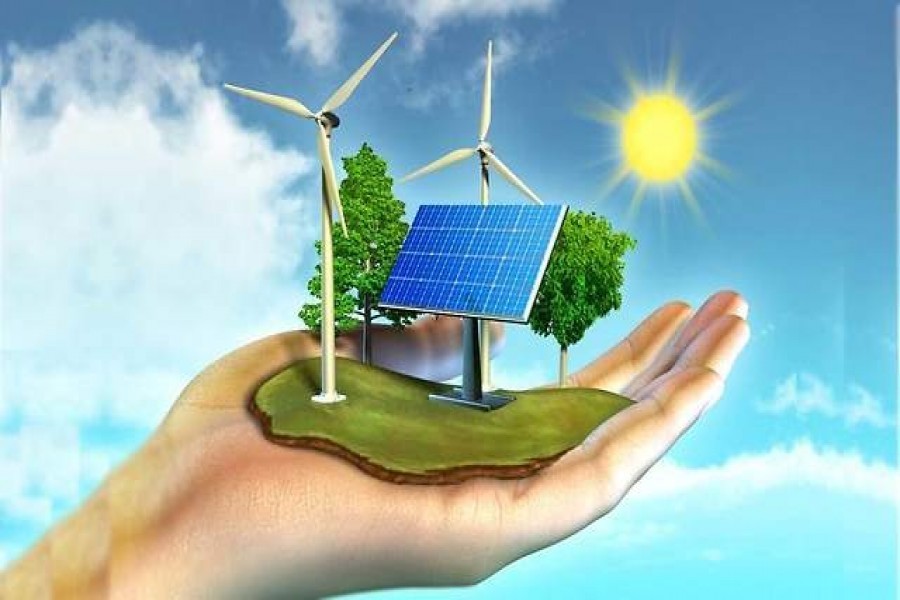
Published :
Updated :

Of the different pandemic-affected productive sectors of the economy that drew a lot of media and consequent government attention to obtain financial stimulus to run their operation, the renewable energy is perhaps the one that got the least coverage or incentive. Though it is very much a member of the larger family of the Medium, Small and Micro Enterprises (MSMEs), it has not been mentioned as often as other more vocal claimants to the government subsidies or other kinds of financial support. Although not so well-promoted, the fact remains that the renewable energy or, more particularly, its most potential component, the solar power segment is in need for massive government support for its sustenance. It has been badly hit by the Covid-19-induced economic disruptions, as this paper was told recently by a leader of the Bangladesh Solar and Renewable Energy Association (BSREA).
The importance of the renewable energy as an alternative to the fossil fuel-based power, and that too in an energy-starved country like ours, cannot be overemphasised. And that is more so when one considers the abandon with which the tropical sun mercifully beats on the entire landscape nearly all the year round. And the few enterprises that are engaged in supplying environmentally clean solar energy through their photovoltaic (solar) cells in the countryside already cover some four million households which constitute around 12.5 per cent of the entire population. They, otherwise, have no access to the power from the national grid.
Though the government is committed to increasing the renewable energy's share to 10 per cent of the total power generation in the country by early next year, which is over 20,000 megawatts, it is still far from reaching the target. In fact, with the renewable power generation capacity now at around 560 megawatts, which is less than 3.0 per cent of total grid power generation of the country, substantial government effort will be necessary to develop the sector and enhance its capacity to meet the challenge of adding some 1,500 more megawatts of off-grid power from the renewable sources.
However, this is about meeting what the government had committed towards fulfilment of its renewable energy targets set in the pre-pandemic days. For understandable reasons, the target could not be met. But the crux of the matter is that even if the government meets its target regarding the renewable energy, it would not exhaust the possibilities that this green solution to the nation's need for power holds. As it came out from the letter that the BSREA addressed to the government, if the floating photovoltaic power production systems could be installed in a phased manner in the country's water bodies including the ponds, which number a few millions, some 5,000 megawatts of off-grid power from the solar energy source could be produced. Most, importantly, this would provide pollution-free power for farmers to run their irrigation pumps, light the rural homes enabling children to continue their studies after dark or women do some extra work like sewing to add more income to their families. Like so many challenges, the pandemic situation has also opened up some opportunities, too. The policymakers should, therefore, prioritise the energy policy to accommodate renewable, especially solar energy, as a major component of the nation's total energy need.


 For all latest news, follow The Financial Express Google News channel.
For all latest news, follow The Financial Express Google News channel.